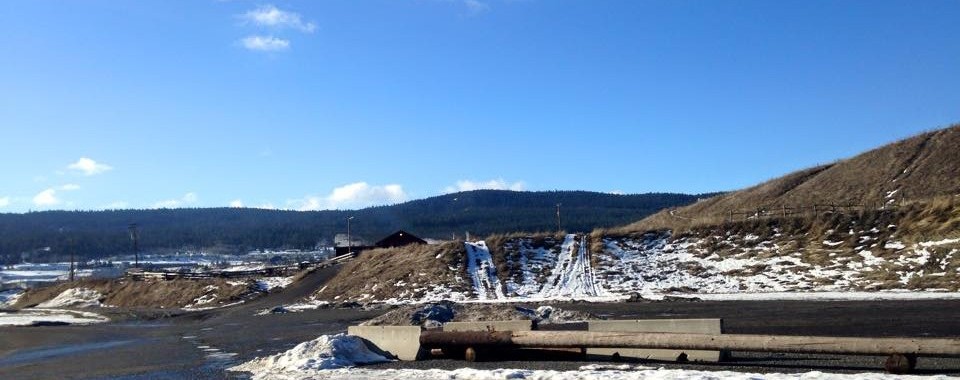During the third week of February, our group member Stella made a trip up to the City of Williams Lake. During her three day stay, she was able to meet with our community partners (Jessica & Matt) and conduct informal interviews with them. During her stay Matt kindly offered to drive her around the city outskirts and gave a tour in the downtown area. In addition to this, Stella also had the chance to walk around the city and observe some of the aspects of local daily activities.
After coming back from Williams Lake Stella shared her experience with the whole team. We quickly realized that the situation is more complex than we initially thought. As such the ideas that we brainstormed early on may not be applicable due to the topographic barriers, demographics composition and the lack of infrastructural development in the city. In addition to this it became clear that transportation issues cannot be explored in isolation. There are many existing social and ethical problems intertwined with one another that affect the transportation issue. We recognize that we may have been too ambitious about the goal of our project, and we are now trying to redirect our focus.
On Thursday March 12th, we had a conference call with our community partners Jessica and Matt. We expressed our concerns on the local transportation system and proposed methods that we would like to use to gather primary information for our research at Williams Lake. Throughout the meeting we consulted Jessica and Matt about possible methods we may use. The following is a list possible methods:
- Surveys (paper & online):
- Purpose: To gather a socially diverse set of data to reflect the actual transit situation through a set of multiple choice and short questions.
- Execution:
- Paper: First locate highly frequented community areas (ensuring to the best of our abilities that each social group is represented) using local knowledge and data from the subset within the Cariboo Regional Area. Then use this information to target key distribution locations for our surveys.
- Online: Post the survey on Social Planning Councils’ Facebook page.
- Transportation Dairies:
- Purpose: To gain better understanding of the use of transit system in the daily life of local people, including how people feel towards commuting in the local area and their pattern of destinations.
- Execution:
- Paper: select and invite people from the survey to participate in writing a one week diary of their daily commute. They will be asked to take notes on how they feel while commuting, where are the destinations and purpose of commute and which transportation mode they would prefer.
- Expert interviews
- Purpose: Attain additional information pertaining to our topic
- Execution: We plan on first distributing a consent form to each of the individuals who have agreed to participate in our research. Following this we will devise a list of questions that apply to the interviewee in question. Depending on timing and location we will either be conducting these interviews in person or over the phone.
- Possible interviewees:
- Hitch Hikers
- Randomly picked locals within the downtown area/ library
- Possible interviewees:
- Informal interviews
- Purpose: Gain a local and personal perspective on the transit situation
- Execution: We will be doing some informal interviews with random local individuals in their daily situation.
- Possible interviewees:
- Hitch Hikers
- Randomly picked locals within the downtown area/ library
- Possible interviewees:
With all the methods above, it is important for us to be mindful of the ethics and inclusivity of the things we are trying to do while we are at Williams Lake. Especially when we are aiming to reach out to not only residents in the town centre of Williams Lake, but also outskirt communities and First Nations Bands. Through Bev Sellars’ book and having the wonderful opportunity to engage in personal conversations with her, we truly understand the tensions that still exist between indigenous people and white authorities. Therefore before conducting our research in the area, we would make the effort to get in touch with the local community leaders and ask for their support and consent on carrying out some of the proposed methods. After gathering and analyzing all the data, we may potentially put them together into a PPGIS map to present the findings from our primary data sets.
